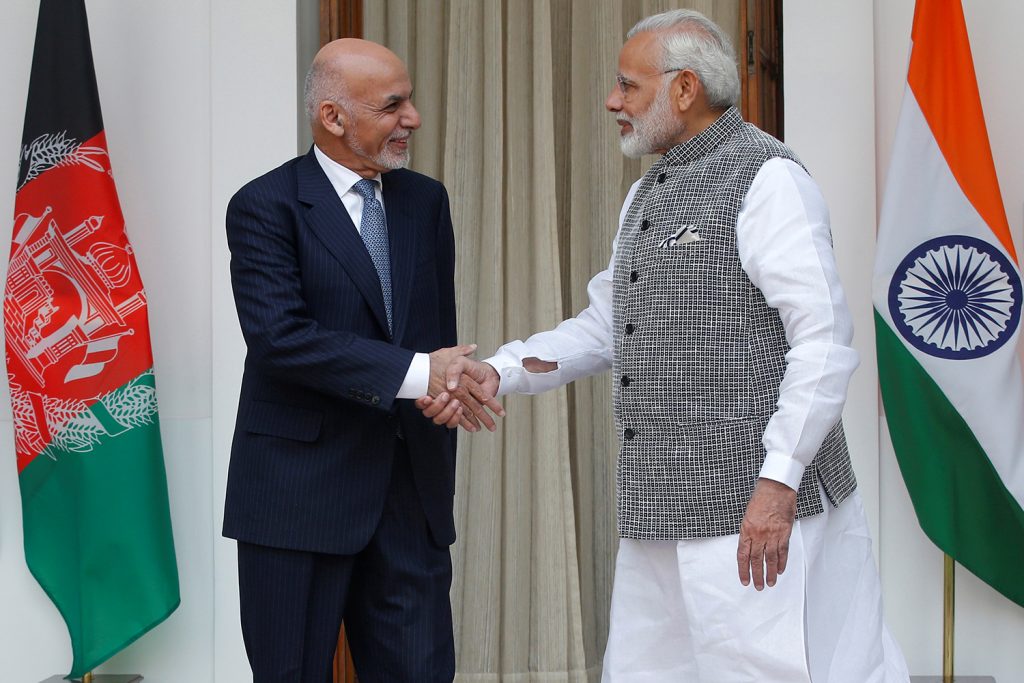From the outset, the broad contours of the now-signed US-Taliban agreement had troubled New Delhi, an important partner of Afghanistan that played no active role in the peace efforts and considered the agreement one-sided. The United States now appears to be making an effort to remedy India’s concerns. During his recent visit to New Delhi, the US chief negotiator Zalmay Khalilzad called on New Delhi to open a political dialogue with the Taliban and directly discuss its terrorism-related concerns. “India is an important force in Afghanistan, and it would be appropriate for that [India-Taliban] engagement to take place,” said Khalilzad, according to The Hindu.
Despite positive public statements, many Indian policymakers are not fully sold on the merits of the US-Taliban agreement, which New Delhi views from its own strategic prism. In fact, many in New Delhi favored a no-deal scenario with the Taliban over a deal that favored Pakistan, especially given Islamabad’s ambiguous and undefined role in the peace efforts. That concern has remained unabated in New Delhi.
More specifically, while India might entertain the US call to consider opening a direct political channel with the Taliban, the effort is likely to fall short for several reasons. For starters, as the largest regional donor to Afghanistan, India cannot afford to gamble its strong, multilayered partnership with the Afghan government in a risky attempt to establish political relations with the Taliban. Even if New Delhi shows an interest in a dialogue with the Taliban, the outreach is likely to take place silently under the table rather than in a formal setting.
Second, New Delhi’s definition of “terrorism” appears markedly different from the one imagined in the US-Taliban agreement. For India, its terrorism-related concerns are predominantly Pakistan-centric, and not directly related to the Taliban. As such, despite the presence of reliably anti-India elements within the Taliban ranks, no amount of Indian engagement with the group would alleviate its Pakistan-centric concerns. After all, in New Delhi’s calculation, what can it gain from engaging with the insurgency that it cannot do so by deepening its ties with its existing partners inside/outside the Afghan government? Undoubtedly, India needs security guarantees to safeguard its personnel and interests in Afghanistan, something the Taliban can “promise,” if not deliver. But the Taliban are not in a position to deliver on India’s terrorism-related concerns.
Furthermore, even if New Delhi decides to seek a political dialogue with the Taliban, it is unclear how that engagement might look like—including at what level it might occur and in what setting (bilateral or trilateral with the United States), what issues need to be discussed, and who will lead it. Equally important, India has pursued its two-decade-old partnership with Afghanistan strictly in a bilateral manner through its diplomatic mission in Kabul. But should New Delhi decide to open a political channel with the Taliban, it may need to appoint a capable special representative tasked with leading a limited engagement with the insurgency.
Meanwhile, while the US-Taliban agreement obligates the Taliban to “prevent any group or individual, including al-Qaeda, from using the soil of Afghanistan to threaten the security of the United States and its allies,” it does not stipulate who the United States’ allies are and whether India makes the cut. What’s more, the counterterrorism guarantees promised in the agreement does not specify any groups, or Taliban elements, that are anti-India.
Similarly, beyond Afghanistan, the document makes no mention of the Taliban’s role in al-Qaeda-centered threats in the region, including in India. For instance, while al-Qaeda in the Indian Subcontinent (AQIS) has grown its operational capabilities inside India, the group also has a significant number of fighters and trainers embedded within the Taliban ranks. Hence, the threat posed by AQIS and its ideological siblings is crucial for India, mainly because New Delhi recognizes the growing attraction of AQIS’s appeal, as well as the group’s ideological influence and operational reach and capabilities inside India.
More crucially, Indian leaders are rightly concerned about the dangers of puritanical Wahhabism, an ideology that is slowly seeping into India’s over 200 million Muslim population, including in Kashmir. But while Indian Muslims have generally resisted the ideological temptations of Wahhabism so far, the country has also witnessed a notable increase in the number of Salafi-Wahhabi as well as Ahl-e-Hadith mosques and madrassas. For Indian policymakers, this threat and the conjoined dangers of homegrown radicalization appear genuine—especially amid ongoing tensions around religious nationalism that groups like AQIS can readily exploit.
Third, while New Delhi has arguably pursued several policies in Afghanistan, not every one of those policies were underpinned by ideological or even economic concerns. Instead, each of India’s Afghan policies seemed to have principally and consistently focused on ensuring some sort of a functional balance between Afghanistan and Pakistan. In essence, striking that balance requires New Delhi to ensure that Pakistan does not abuse its role in the Afghan peace talks, effectively undermining India’s broad set of diplomatic, security, and development interests in Afghanistan. As such, New Delhi has aligned closely with the Afghan government and has supported their position in peace efforts. Unless New Delhi decides to undo its current policy position and go against its Afghan partners, any dialogue with the Taliban would effectively prove meaningless.
For now, these and other considerations are likely to put New Delhi in a quandary. On one hand, it is presented with an opportunity to carve out a constructive role for itself in the peace process, with a bonus that it is likely to irk Pakistan. On the other hand, India is faced with a tricky decision tree to ensure its future policy approach does not put New Delhi at odds with the Afghan government.
As India considers its next steps in Afghanistan, it may well conclude that it can no longer remain a mere spectator in Afghan peace efforts and begin to make certain policy adjustments. This may include more aggressive calls for a humanitarian ceasefire, seeking more clarity about Pakistan’s role in the peace process, and possibly seeking an observer role in the future intra-Afghan talks. Meanwhile, even if Indian leaders decide to expand its contacts with the Taliban, whether formally or informally, its priorities are likely to stay latched up and aligned with the Afghan government.
Will India amend its approach to Afghanistan peace?

Leave a Comment












